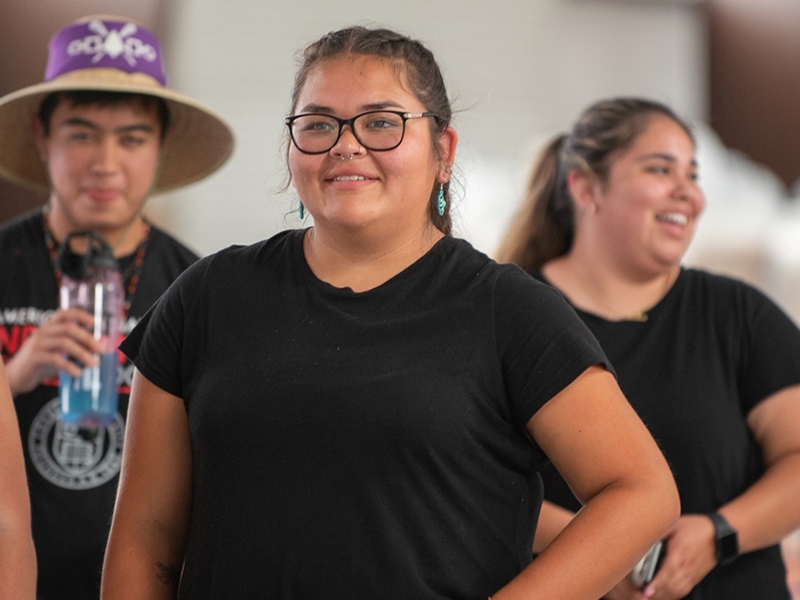
The Indigenous Food and Agriculture Initiative is hosting its ninth annual Native Youth in Food and Agriculture Leadership Summit July 18-24 at the U of A. Indigenous participants ages 18-24 will travel from around the country to Fayetteville to spend a week building relationships with other Indigenous youth while learning from industry leaders about different tracks within food and agriculture.
The initiative's youth coordinator, Summer Wilkie, said, "My hope is that the youth summit offers a space that helps support future solidarity and collaboration. I try to remind everyone that these connections we make at the summit with one another and the speakers and visitors could be important contacts for career and goals now or in the future."
The event prepares the next generation of Native agriculturalists, equipping participants with professional skills and knowledge while building lifelong connections to other youth with similar interests.
"By creating peer-to-peer networking opportunities and interfacing with professionals and experts in the field, summit attendees gain knowledge and access to support their efforts in ag and food systems work to the benefit of their families, communities, Tribes and themselves," said Carly Griffith Hotvedt, IFAI associate executive director.
IFAI's youth summit has welcomed hundreds of attendees through the last nine years, with more than 50 expected for this year's event.
"I'm really proud that our summit attracts young leaders who I know are thinking critically about food and agriculture and who will help shape our future," Wilkie said.
Along with sessions and activities on the U of A campus, participants will tour Tribal food and agriculture operations across northeast Oklahoma to learn more about food sovereignty and conservation efforts at the Cherokee Nation and the Euchee Butterfly Farm, as well as have the chance to prepare a meal alongside Chef Denisa Livingston and Chef Mackee Bancroft with Native-produced and local ingredients.
The IFAI also celebrated its 10-year anniversary in April. The organization's legal, policy and research expertise serves as a resource for Tribes looking to invest in agriculture and Tribal food systems, whether that includes establishing Tribal departments of agriculture, adopting food and agricultural code, providing free training and one-on-one consultations and more. However, Native youth programming and outreach, like the annual summit, are key components to the success of Indian Country food and agriculture.
"It's critical for Indian Country to invest in and support our youth to ensure the future of Tribal food systems and agricultural operations," Hotvedt said.
About the Indigenous Food and Agriculture Initiative: The Indigenous Food and Agriculture Initiative enhances the health and wellness of Tribal communities by advancing healthy food systems, diversified economic development and cultural food traditions. The initiative provides strategic legal analysis, policy research and educational resources to empower Indian Country through food sovereignty, agriculture and economic development. To learn more, visit indigenousfoodandag.com.
Contacts
Mary Belle Zook, communications director
Indigenous Food and Agriculture Initiative
580-732-0109, mzook@uark.edu